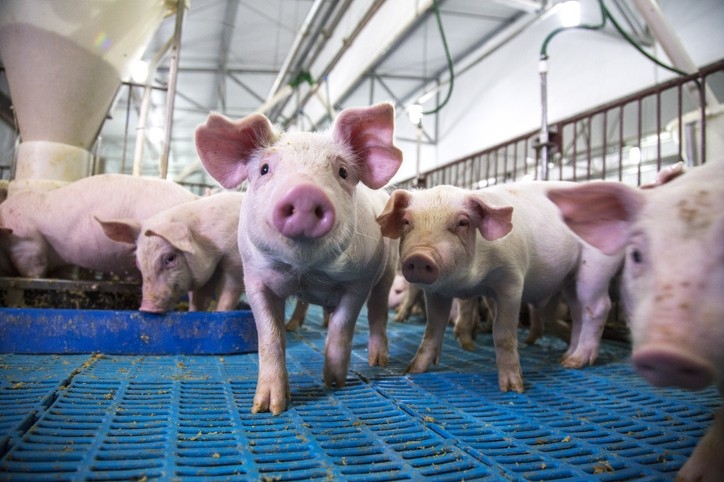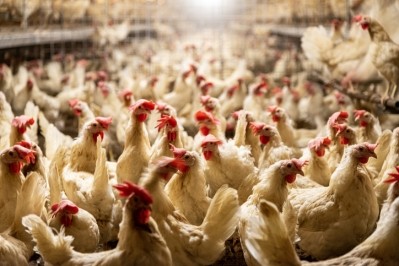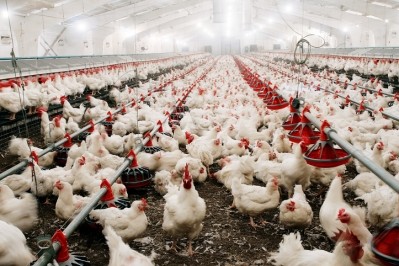Protective suitcases: New gut technology targets disease and immune system function in pigs

The collaborative projects have been awarded $600,000 by the Saskatchewan Agricultural Development Fund and will target two diseases, as well as immune system function, in pigs and piglets using Renaissance’s yeast-based technology.
Non-invasive feed model
The goal of both projects is to develop cost-effective, safe, non-invasive health solutions that can be conveniently included in the pig’s feed.
Dr Heather Wilson, a scientist and program leader in vaccine formulation and delivery, will coordinate the two distinct projects at VIDO. She was chosen as one of the most Influential Women in Canadian Agriculture in 2023.
“Dr Wilson’s research focuses on developing vaccines for infectious diseases and identifying novel vaccine formulations and delivery routes that are compatible with current animal husbandry practices. Her background in molecular biology and immunology and extensive experience in working with diseases in swine and animal models will help with developing a market-oriented product,” says Dr John Husnik, Renaissance’s CSO and Office of the CEO.
Animal health is an important goal for Renaissance: "Our bioactive yeast strains have immense potential as therapeutics."
Studies have shown that yeast can act as a carrier for probiotics, enzymes, immune support ingredients, and vaccines, protecting these substances until they reach their target site in the gastrointestinal tract.
In one initiative, RBSC and VIDO will pioneer orally delivered yeast-based vaccines for porcine epidemic diarrheal virus and porcine reproductive and respiratory syndrome virus.
“In collaborating with Dr Wilson, it became apparent that there was significant unmet need for better vaccination protocols for the prevention and control of those two diseases in swine,” explains Dr Husnik.
VIDO is internationally recognized for its role in vaccine development and is one of Canada’s national science facilities. It has conducted infectious disease research and vaccine development for almost half a century; eight of its vaccines have been sold commercially, and six have been described as world-firsts.
The second project addresses gut health, immunity, and overall growth in piglets.
Looking to alleviate the overuse of traditional antibiotics, the partners will work on an orally delivered yeast that secretes peptides, zinc, and essential amino acids into the pig’s digestive system. This approach aims to mitigate stress, protect against infections, preserve gut health, and promote lean muscle growth.
Asked what advantages the orally delivered yeast-based vaccine offers when stacked against other methods of administration, Dr Husnik tells us:
“Yeast, particularly Saccharomyces cerevisiae, has a long history of safe use in food, beverage, and feed. As a non-pathogenic organism, it poses minimal risks and is very cost-effective when used as a vaccine delivery system.
"The demand for oral vaccines delivered in feed or drinking water is substantial in pig barns due to their convenience, needle-free approach, relatively hands-off, and safe mode of administration. Our yeast-based oral vaccine will protect the vaccines from the challenges presented by the harsh gastrointestinal environment, and induce long-lasting immunity.”
Protective suitcases
Expanding on the technology, he says the RBSC yeast biotherapeutics will be designed to target known immune-induction sites in the small intestine.
“This localization will significantly reduce the challenging dilution effect of administering vaccines to the digestive tract. Yeast is well-known for its ability to survive the harsh conditions of the digestive system, including the acidic environment of the stomach. This resilience is attributed to the robust cell wall of the yeast, which can protect encapsulated bioactive and antigenic molecules from degradation. Studies have shown that yeast can act as a carrier for probiotics, enzymes, immune support ingredients, and vaccines, protecting these substances until they reach their target site in the gastrointestinal tract.
“The Renaissance bioengineered yeast acts as a protective ‘suitcase’ for these molecules, preventing their degradation in the stomach and ensuring targeted delivery to the intestines.”
The two projects are scheduled to run for three years. “We anticipate information about the final product emerging in and around 2027.”
Tackling multiple animal health challenges
The development of yeast-based swine oral vaccines could lead to similar applications in other farmed animals such as poultry, and cattle, as well as in aquaculture, and companion animals, thus broadening the scope of yeast-based technologies for multiple animal health challenges, according to Dr Husnik.
“Our success in swine health may attract collaborations between biotechnology companies, research institutions, and larger agricultural organizations globally, to promote a collaborative environment for new technologies for animal health. Renaissance can leverage insights gained from this project’s success to contribute to the research and development of solutions for other animal health challenges.”
In addition, he says, proving the effectiveness of yeast-based oral vaccines will facilitate regulatory approval and create a path for the widespread adoption of yeast-based technologies in animal health, providing a new standard for disease management in agriculture.
There are also potential applications of the yeast-based technology beyond livestock, such as in human health.


















